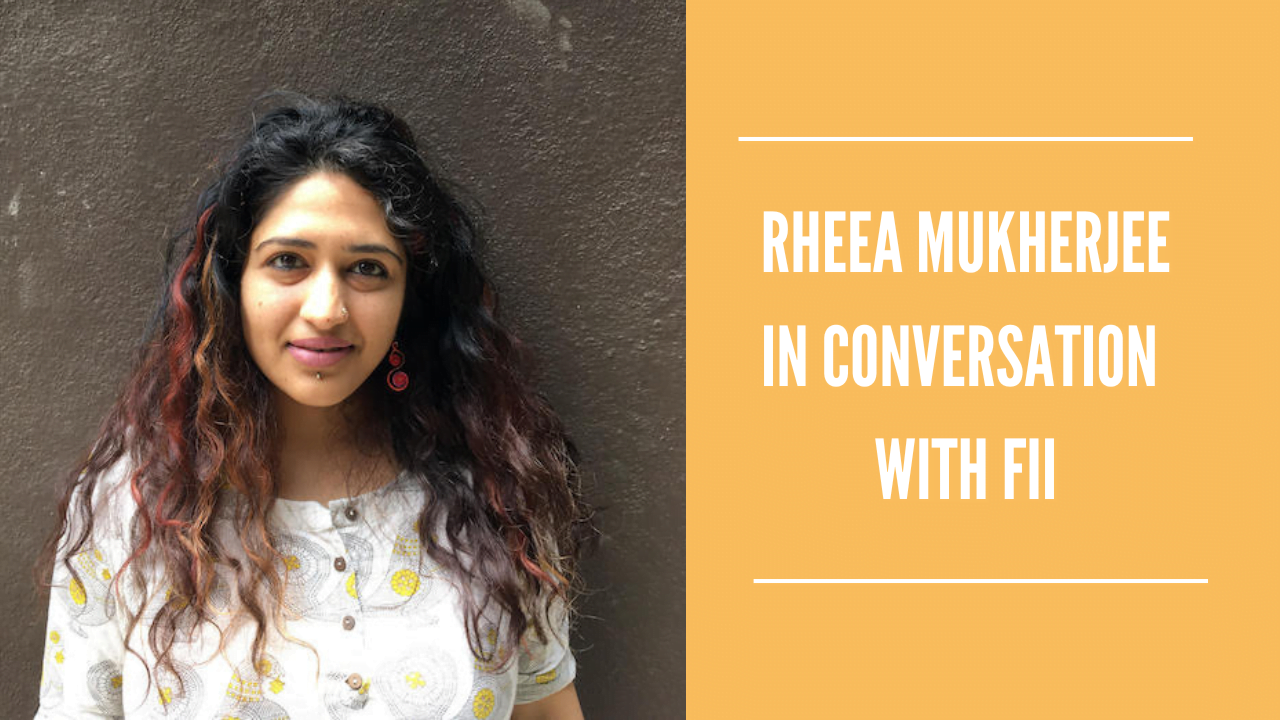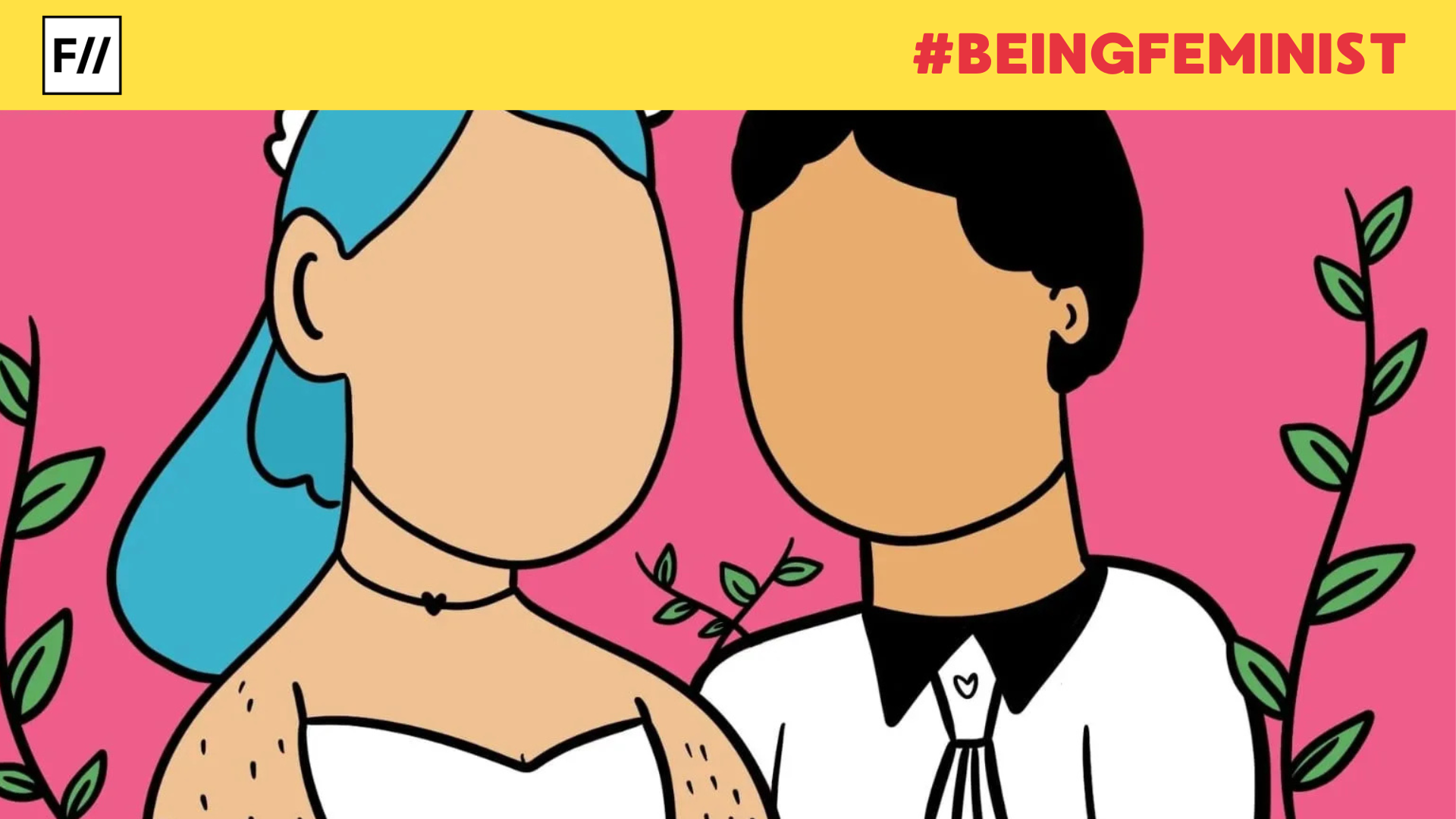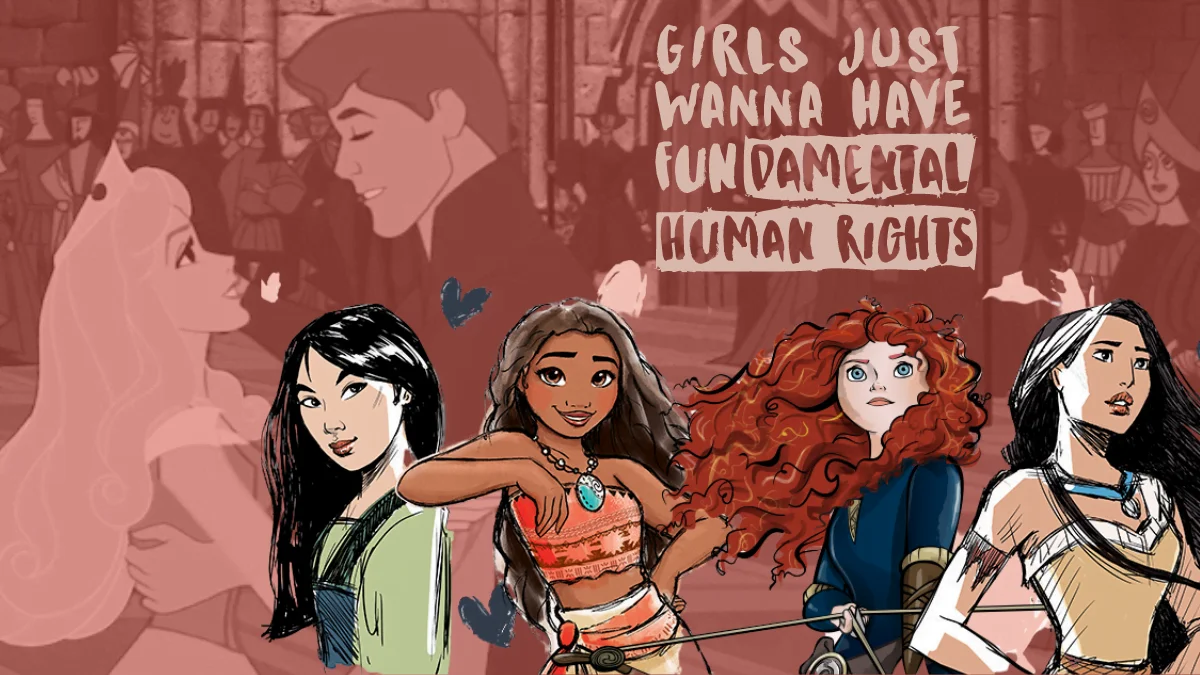Rheea Mukherjee is the author of The Body Myth (Unnamed Press & Penguin India 2019) and The Girl Who Kept Falling In Love (Penguin 2023). Her first novel was shortlisted for the TATA Literature Live First Book Award 2019. Her work has been featured in the Los Angeles Times, Buzzfeed, Scroll.in, Electric Literature, Out of Print Magazine and Southern Humanities Review, among others.
Rheea Mukherjee is the author of The Body Myth (Unnamed Press & Penguin India 2019) and The Girl Who Kept Falling In Love (Penguin 2023).
In 2012, she co-founded Bangalore Writers Workshop. In 2014, she co-founded Write Leela Write, a Design and Content Laboratory.
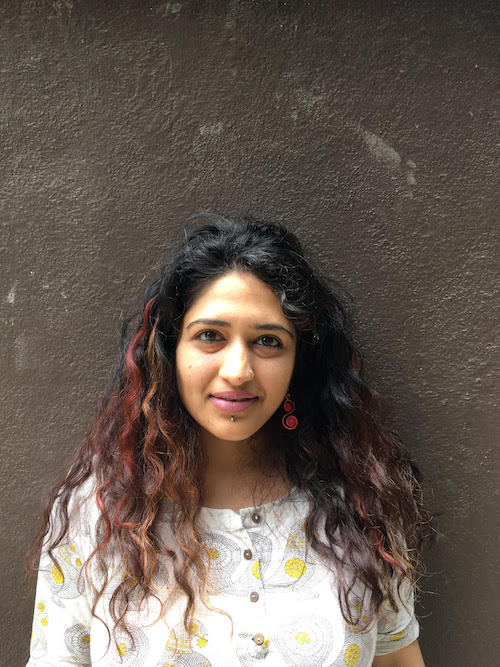
In this interview with FII, Rheea discusses love and dating cultures in postmodern India, social activism and her recent book The Girl Who Kept Falling In Love.
FII: Both your books, The Body Myth and The Girl Who Kept Falling In Love, focus on navigating human relationships and identities in urban settings. How important is it to figure in the city space and contemporary urbanities while discussing issues of love, friendship, queerness and identity?
Rheea Mukherjee: Even before my two novels, I used to write short stories and if I look back at my own pattern of writing, they’ve always inhabited Indian urban spaces. I think that’s because I feel most true to that lens of India. I think that I think about India like many people who live in urban cities do. If you come from a middle class or upper middle class lens, you forget about the fact that India is still 70-80% small towns and villages and not urban settings.
So I think that lens is very important in navigating the context of human relationships and identities we are forming. I like to embrace it. Since I write fiction that is within the realm of reality, that’s why I feel most authentic to that lens of the world. I feel like it would come off as ‘trying too hard’ if I was put in another lens.
FII: Your recent book The Girl Who Kept Falling In Love is one of the first fictional texts to discuss the Anti-CAA protests in detail. How important do you think it is to feature contemporary protests in literary texts in India today?
Rheea Mukherjee: If we go back in time, we can see that there has been a history of different movements. But our generation – the millennials – faced the anti-CAA movement on a larger scale not only because of social media, but also because there was a bigger movement happening in the country at the time that had taken up space in different classes and castes. There was some unity for a bit. I think it’s really important to show that – the power of love as a politics. That is something that has power and will always have power even in between these rigidities and different forms of fascism that we’re seeing right now.
My participation in those protests were limited to Bangalore and obviously on social media. But even from a Bangalore context, it was a powerful time right before COVID shut it down everywhere. Until then, there was momentum and the inner realities of people were being discussed. There were regular protest spaces like town halls and then there was Bilal Bagh – Bangalore’s Shaheen Bagh, where people sat everyday. There were Muslim men and women, queer people and Hindu folks as well which made the place a mixing space which usually doesn’t happen because, in urban spaces, we are segregated at least by class. So that was the first time I even saw something like that. I don’t think I can give you any great realisations from that but it was there- a place to have a regular normalcy in that kind of diversity.
FII: The Girl Who Kept Falling In Love swerves into a dystopia in the final chapters which is all too familiar to us, in India today. How does the future of the current Indian fascism look to you?
Rheea Mukherjee: When I was writing this book, I had no idea that it would come out at a time when the Palestine genocide was happening. The world is confronting Islamophobia in a very nuanced way right now. Of course in India there’s a completely different picture. I think it’s terrifying, but I have to say that in a space like this we have to hold on to hope and the courage within ourselves and others.
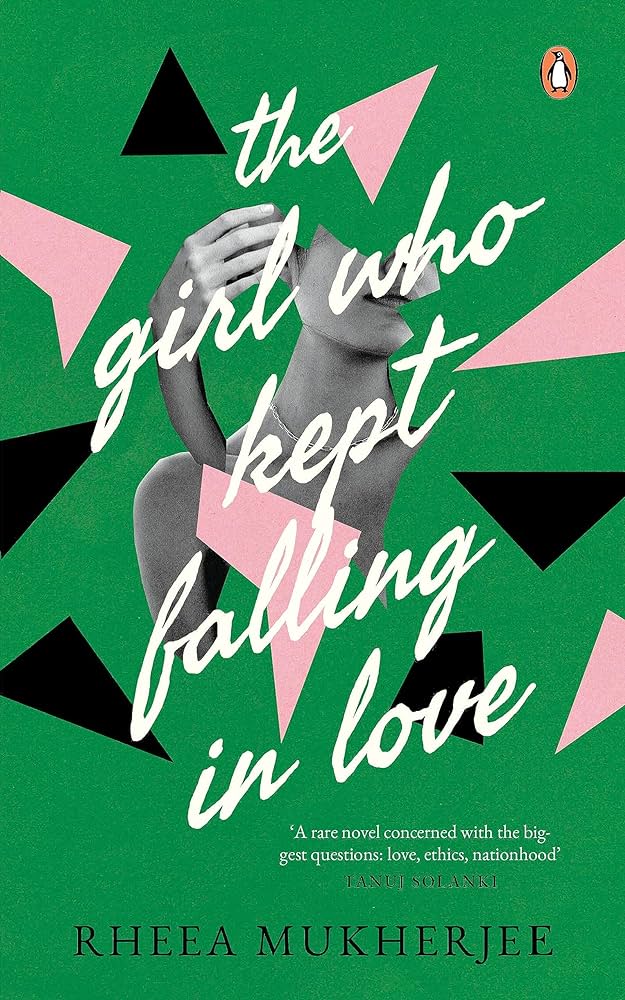
Otherwise, we’re just going to be lost in this darkness. There has to be something we can carry on and if there’s anything we can see from human suffering it’s that somehow there’s some persistence that we’re going to fight for something. Some of us obviously have it easier than others. I don’t think we can do anything about that but we have to hold on to some kind of hope.
FII: You talk about the ironies of social justice and instagram woke culture in protest settings in your book. Do you think such self-righteous, unattainable wokeness in activist circles is detrimental to the cause of social justice?
Rheea Mukherjee: If I were to track Indian urban wokeness on Instagram, I’d start from 2016-17 when there were a lot of anti-caste voices and voices on the politics of identity and queer identity. But what has happened now is that there’s obviously a facade to some of it, made in an effort to build defensibility. So anytime you offer a population of people a space to build defensibility which makes them think ‘I get to say something without being critiqued’, they’re hijacking some part of the narrative just to feel good about themselves. The truth is, it’s deeply uncomfortable to be a human and I don’t think people want to acknowledge that. So they want to go on a polarising side.
That said, I think it’s really important for people to understand that there are progressive values, there are anti-caste values, there are spaces to understand humans out of this stupid cis-normative way of living and those should be felt in the way people practise them and how they treat others in real life. I think that’s becoming a huge telltale sign of what wokeness means – how you are interacting with all kinds of people in your own life. That might be very different from what you’re projecting online. Admit that being human is very complex and uncomfortable because that’s the only way we can really move forward.
FII: In The Girl Who Kept Falling In Love, both Kaya, her mother and her grandmother are “unconventional” women who defy the patriarchy in their own ways. How impactful do you think women characters who are deemed “difficult” are in contemporary literature?
Rheea Mukherjee: This whole conversation about “difficult” women or women who stir things up, have opinions, etc is basically the unlikeable female character that’s been in Western literature. In India from a literature perspective more writers are talking about this and more women characters are being impactful and talking about how they’re not going to be these timid, shy, fragile things. Despite that, I think its still very tough to be a three dimensional person expressed as a woman in this country.
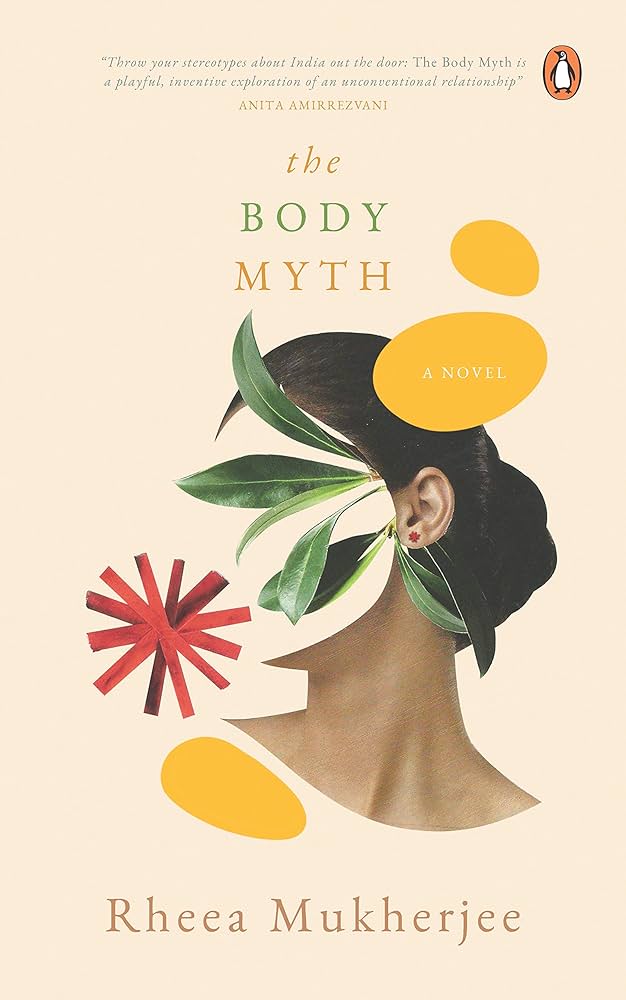
I’m saying that as someone who is deeply privileged. I think we just need a lot more of it until it marinates into our consciousness that gender and expression are just made up constructs and we need to be full human beings to see each other. I’ll still say it’s difficult even though more and more people are writing about it. I think you’re still going to be judged for it.
FII: Kaya’s second big love Anna is depressed and suicidal. How do you think mental health can be discussed in a sensitive manner in contemporary literature?
Rheea Mukherjee: I think that’s a super important question because first of all, I struggled with mental health illnesses. I had depression for years and struggled with it everyday. There are things that people experience that you may not be able to put yourself in, but tell it as it is. If you are coming from a place of authenticity, it’s messy. There’s something in the book – I won’t give it away – but there’s a larger debate I played with which is ‘Do you have control and consent over your own life?’. Do you have that right or is that always going to be villainised? That could be seen as very controversial or very relevant depending on how you’re looking at it.
But I feel like if you’re being honest about the situation and the fact that a character can go through this, then I think it’s fair play. I think it’s honest to write that. Of course in mainstream media mental illness is still treated like a joke. There’s still so much taboo about it even in urban spaces. Even if you’re open about it, people just get uncomfortable if you’re talking about it. Once I was sitting at a work event where people were talking about something and I was just expressing that I have depression and needed to take my medication for it. There was pin drop silence. They didn’t know what to say back and I just excused myself to get a glass of water. People are uncomfortable with it a lot more than those who are struggling with it.
FII: Kaya’s predicaments are universal and her quest for finding love is all too relatable. How did you comment on dating culture in contemporary India through her characterisation?
Rheea Mukherjee: People were always dating and falling in love. But the way people are dating now, looking at it from a social media perspective, is obviously influenced by that. I find that the problem which has probably existed in several different forms before is that we’re still looking to find some self-worth from another person. I think we’re still trying to sell that. When I say politics of love, what I tried to play with in this book is this: Kaya is someone who wants to feel like she’s worthy of love and she has her own metrics of what that means.
When I say politics of love, what I tried to play with in this book is this: Kaya is someone who wants to feel like she’s worthy of love and she has her own metrics of what that means.
Rheea Mukherjee
So when we look at dating culture, are we hoping to measure up? Like ‘I have these values, I have these needs and I have these things that I want to do in life and that’s why I want a partner’. Are we able to say it straight, or is it coming from a place of insecurity regarding our looks and what we should be doing in life? On a good day, it’s a mix of all of those things.
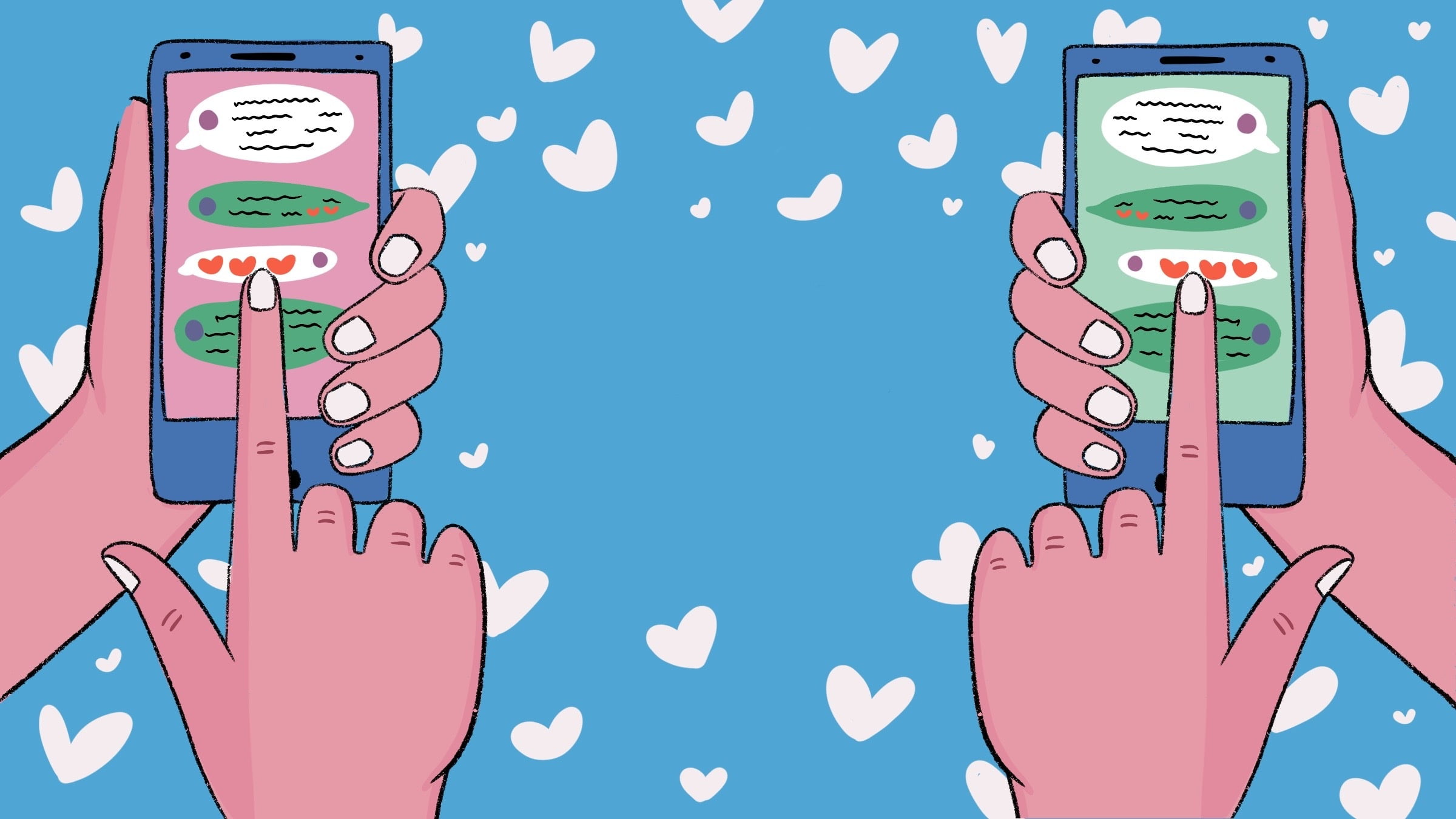
But I think the dating culture nowadays is just a need to be seen because our society doesn’t do a good job of witnessing each other. It’s just the way of our capitalist society. We’re not able to witness each other in a meaningful way. So romantic love will always be this little cheat code that people use to be seen. That is why we land up in so much trouble because of love.
FII: Kaya comes from a diasporic family. How does the Indian diaspora in the USA figure into the current landscape of Indian fascism and national pride?
Rheea Mukherjee: The diaspora figures hugely into the current scenario of what India is reflecting right now. I spent my life in between the US and India for most of my life. I had a very unique upbringing that way because I was neither fully American nor fully Indian because I had done some schooling in India and some in the US. I did my college and masters there as well. But then I chose to come back and live here even though my family was in the US. So those are the lenses I was using even with Kaya’s character.
But I feel like what I witnessed in the US is that it’s the same kind of problem – an insecurity of identity that pushes this at the end of the day. First of all, you’re going to a country like the US where there is racism and you don’t know whether you’re supposed to be proud of your country. The narrative is that you come from a poor, under-resourced country and that’s why you come to America to make it big. There’s an irony in that. A very savarna, upper caste idea of success is that you’re in the US. Now that breeds a contradiction that nobody can really articulate unless they’re super aware of it because it also requires people to talk about their own systems of oppression. Indians don’t like to talk about that in America, especially how their own caste or social mobility has benefitted them.
The narrative is that you come from a poor, under-resourced country and that’s why you come to America to make it big. There’s an irony in that.
Rheea Mukherjee
So what happens is that because of a movement like this for the past five to eight years, we are saying ‘hey look how amazing we are, look at our roots’ and now we’re showing off. You get to say all this about India because you’re not just a random brown person doing well. You’re more than that. You’re someone from India who has all this rich cultural heritage. But the contradiction still exists. They’re holding onto that to give some kind of legitimacy to who they are.
About the author(s)
Ananya Ray has completed her Masters in English from Jadavpur University, Kolkata, India. A published poet, intersectional activist and academic author, she has a keen interest in gender, politics and Postcolonialism.
